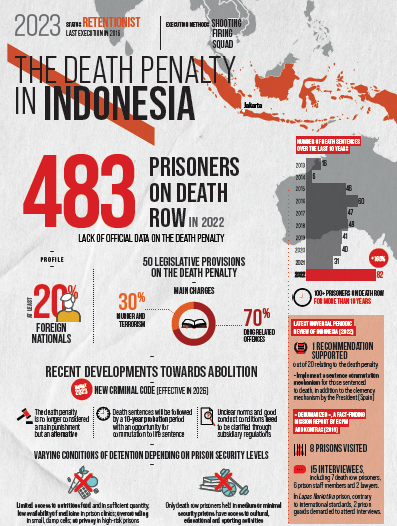
As an advocate for human rights in Indonesia, you successfully defended yourself against defamation charges brought by the government. These charges stemmed from comments made during an online discussion, which has since been removed, regarding the findings of a report you co-authored with other civil society organisations on mining activities in Papua and the purported involvement of Indonesian officials. Despite your victory, the government has filed an appeal. What are your next steps, and how can we offer our support?
It has been a challenging period for human rights defenders over the past nine years since Joko Widodo was elected as President. He was anticipated as a harbinger of change and a new hope for mainstreaming human rights agendas in Indonesia. During his campaigns in 2014 and 2019, Jokowi touted a comprehensive list of human rights enforcement and initiatives. However, this narrative shifted when he appointed individuals allegedly involved in human rights violations to his administration. This move perpetuated an autocratic legalism regime characterized by discriminatory and restrictive regulations, including the Criminal Code and the Electronic Information and Transaction Law (EIT Law).
Advocating for various human rights issues remains challenging if these regulations are not revised in line with our recommendations to the government.
Support from the international community to campaign against the limitation of the freedom of expression and the protection of human rights defenders in Indonesia is very much needed, especially after this election process, as some of the criminalization is still ongoing. Amicus Curiae, international exposure of the issue of the freedom of expression and interventions from stakeholders worldwide to the Indonesian government is needed. The amicus curiae from the international stakeholders, like the one ECPM provided during my case, can be continued to support such criminalization cases.
Furthermore, how do you perceive the landscape of human rights campaigns with the upcoming general elections? What is at stake right now for the abolitionist advocates in particular?
Given the likelihood of a candidate associated with nepotism and ethical violations prevailing in the current electoral landscape, the prospects for implementing human rights agendas in Indonesia appear increasingly challenging. Their vision and mission documents already indicate a lack of priority for human rights issues. Prabowo Subianto was the alleged perpetrator of gross human rights violations in the past, since there are no vetting mechanisms, it makes the human rights agenda recline and we’re back to the New Order regime. Those ethical violations during the election process and nepotism are not being put to justice. The election is still going along the way and they are the ones who gain the most votes, because Jokowi has a direct or indirect influence in controlling the silent majority and the winning process of this election, since he supports his son to be the candidate for the Vice-Presidency.
Despite Prabowo Subianto’s previous stance against the death penalty, the enactment of the Criminal Code diminishes the likelihood of abolition or a moratorium. Civil society organizations face challenges in gaining recognition and are subject to threats, while policy-making processes remain closed. Additionally, concerns mount as there are plans to increase the militarization budget, posing significant apprehensions for human rights CSOs in Indonesia. Most Indonesian citizens still support the death penalty, and even if there are no executions, it’s unlikely that death sentences will cease to be handed down. Additionally, human rights defenders and abolitionist advocates face a lack of recognition and are often stigmatized as foreign agents or enemies to the State.
Do you believe that freedom of speech in Indonesia is under threat in connection to issues surrounding the death penalty?
It is always under threat because of the New Order regime legacy that stigmatizes Human Rights defenders and people who work in non-profits. It may directly or indirectly affect campaigning on death penalty issues – being one of the topics on the human rights agenda. Should a moratorium be implemented by the government, the efforts made by the civil society to achieve this result may not be recognized by the authorities. Our work as Human Rights advocates would not be credited – which may potentially indicate a restriction of the civic space.
